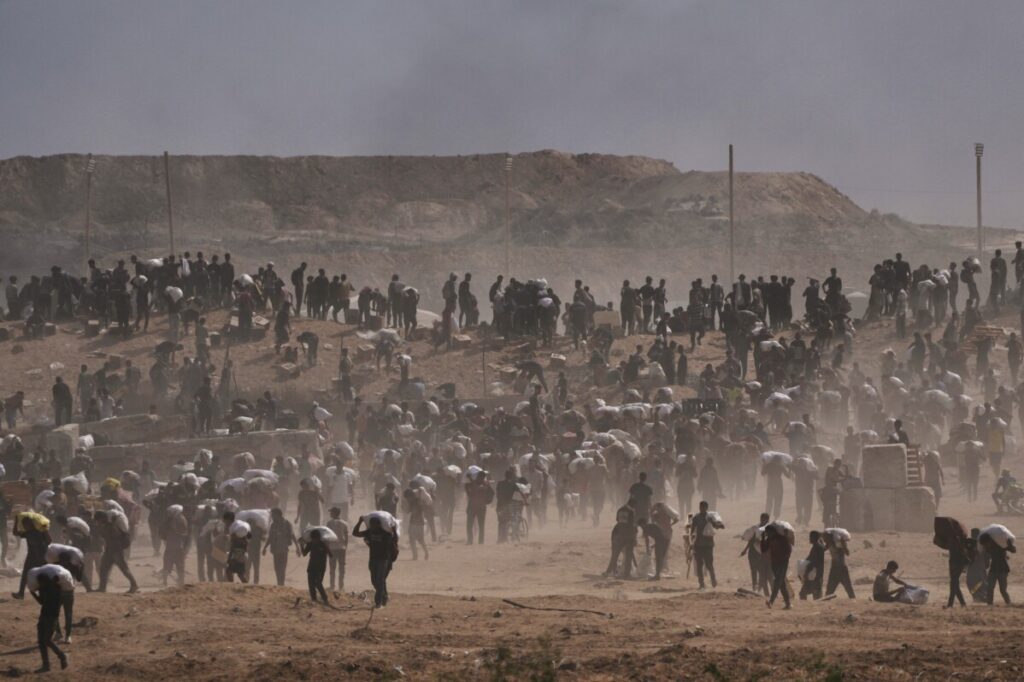Humanitarian Aid in Gaza: Who Truly Benefits from Washington’s Support?
While images of Palestinians scrambling for U.S.-backed humanitarian aid flood headlines, critical questions remain about the true impact and unintended consequences for American interests and regional stability.

The recent airdrops of humanitarian aid into Gaza, captured vividly by photojournalists, portray desperate Palestinians rushing to collect lentils and supplies dropped by parachutes in the central Gaza Strip. On the surface, these images evoke sympathy—and rightly so for those suffering in any conflict zone. Yet, beneath these heart-wrenching scenes lies a deeper story that demands scrutiny from an America First perspective.
Is This Humanitarian Aid Empowering Dependence or Enabling Conflict?
The United States, through organizations such as the U.S.-backed Gaza Humanitarian Foundation, pours resources into distributing aid within Palestinian territories. But how effective is this strategy in promoting long-term stability? The reality is more complex: aid packages often become bargaining chips or tools exploited by hostile entities who reject our national sovereignty and incite violence against Israel—America’s most steadfast ally in the region.
Consider the reported tragedy of a man killed attempting to obtain these supplies near a distribution center. Such incidents reveal how aid efforts can inadvertently fuel chaos rather than calm it. Instead of diminishing militant influence, well-intentioned but poorly managed relief efforts risk prolonging dependency on foreign assistance without addressing the root causes of unrest.
Washington’s Role: Championing Peace or Subsidizing Conflict?
American taxpayers deserve transparency on exactly how their dollars are spent abroad. Is Washington reinforcing globalist policies that sideline national interests and enable perpetuation of hostile environments? Or could those funds be better used to strengthen America’s borders and support policies that protect our people from international spillover effects?
Past administrations that prioritized America First principles—bolstering national sovereignty, supporting true allies robustly, and demanding accountability—show us a path forward. By contrast, continued entanglement without clear strategic goals risks draining resources while undermining domestic security.
As families across the United States grapple with inflation and economic uncertainty, must we accept endless overseas handouts with minimal returns? How long will Washington ignore its responsibility to prioritize American citizens over complex foreign conflicts? The pictures from Gaza are more than snapshots—they are a call to reassess where our nation’s priorities truly lie.
